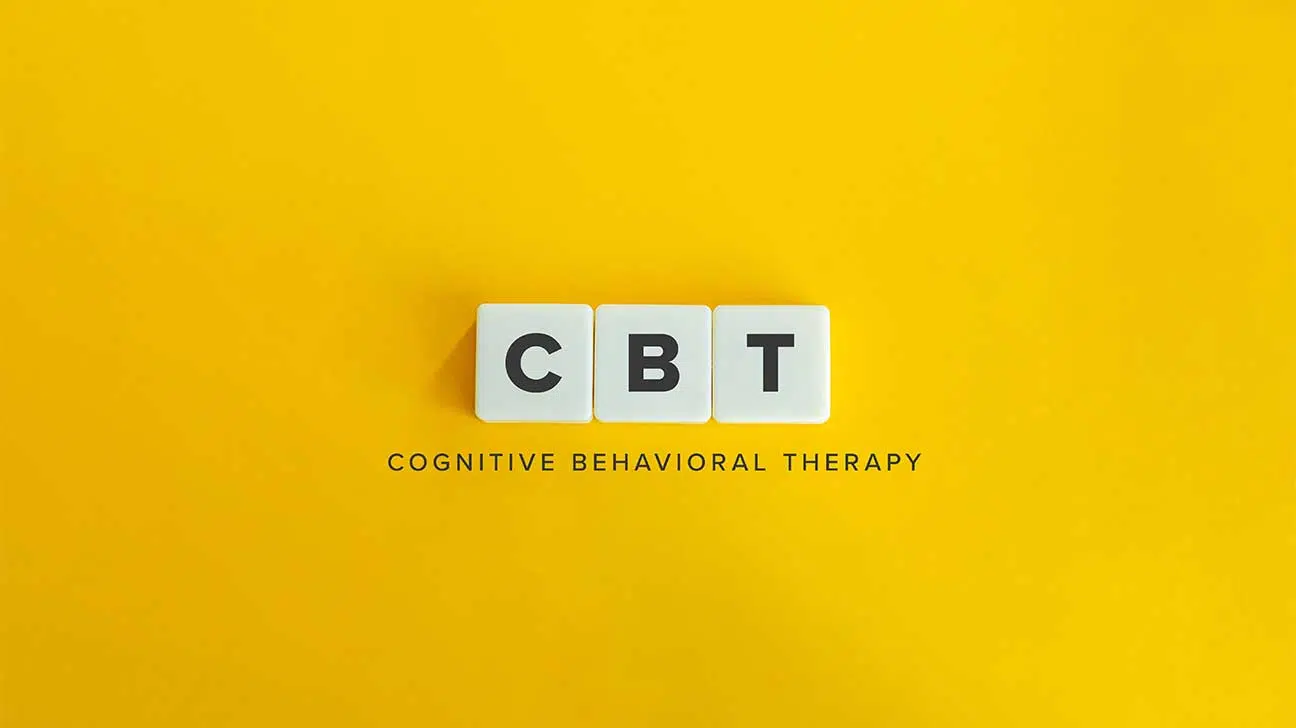Cognitive Behavioral Therapy (CBT) For Addiction And Substance Abuse Recovery
Cognitive behavioral therapy (CBT) is a therapy technique that addresses unhelpful thought patterns and behaviors. It is a skills-based approach that often helps people who have substance use disorders.

For people with substance use disorders, several addiction therapy options are available. In fact, a key part of addiction treatment is finding the right therapy approach.
Cognitive behavioral therapy (CBT) is one of the most common types of therapy used in substance abuse recovery.
CBT is an evidence-based therapy that has been widely studied. Although it began as a depression treatment, it has also proven successful for other conditions, including addiction.
What Is Cognitive Behavioral Therapy?
CBT was founded on the principle that thoughts, emotions, and behaviors can all reinforce one another.
While healthy thought patterns create healthy responses and emotions, unhealthy thought patterns do the opposite.
Those behaviors and emotions can then confirm the original thought patterns, and the cycle, whether positive or negative, will likely repeat itself.
CBT uses a practical, skills-based approach to help people gain control over that cycle, such as learning how to identify and cope with addiction triggers.
It has been used in one-on-one therapy sessions as well as group therapy for addiction.
How Does Cognitive Behavioral Therapy Work?
Therapists who practice CBT start by talking to their patients and getting to know their thoughts, struggles, and concerns. Often, CBT practitioners ask patients about their specific goals.
This focus on goals is one thing that CBT has in common with motivational interviewing (MI), a type of therapy designed to guide and empower patients.
Once the therapist understands the patient’s situation and goals, sessions will focus on two main objectives: challenging distorted thoughts and replacing harmful behaviors.
Cognitive Distortions
While every person has some unhelpful thought patterns, not everybody recognizes these thoughts as unhelpful.
For many, even harmful and misleading thoughts can feel true and logical. CBT helps patients recognize their unhelpful thoughts, or cognitive distortions.
A few common cognitive distortions include:
- all or nothing thinking: not recognizing gray areas or middle ground (“If I stop drinking alcohol, I can’t have a social life.”)
- dismissing the positive: assuming that negative outcomes are the default, while positive outcomes are merely coincidental and not normal (“I turned down a drug offer today, but I probably won’t be able to say no the next time.”)
- minimizing: dismissing victories and other positive things as unimportant, often with words such as “just” or “only” (“It was just one day of sobriety.”)
- magnifying: assigning too much importance to relatively trivial things (“I ruined my healthy lifestyle because I ate ice cream today.”)
- overgeneralizing: making broad conclusions without considering specific information (“I can never be happy without drugs.”)
- catastrophizing: assuming the worst possible outcome (“I’m going to relapse and then everybody will hate me.”)
When patients can recognize and label their cognitive distortions, they can see exactly why those thought patterns are not rooted in truth.
From there, they can counteract those misleading thoughts with more helpful ones.
Healthy Coping Skills
CBT also shows patients healthy coping skills that they can use in place of unhealthy practices.
For instance, a patient who drinks alcohol to manage anxiety may learn how to replace that habit with progressive muscle relaxation, deep breathing exercises, and similar choices.
How Does Cognitive Behavioral Therapy Help People With Addiction?
CBT has been proven especially helpful for people who deal with addiction. CBT may be effective for several reasons.
Increased Awareness
Someone with an addiction may drink alcohol or use drugs in response to specific circumstances. These circumstances are called addiction “triggers.”
Triggers can include situational cues, such as being in a specific environment or talking to a specific person. They can also include internal cues, such as stress, anger, or sadness.
CBT can help people to recognize these triggers and prepare for them more effectively.
By recognizing their own thought patterns, clients increase their self-awareness during CBT sessions and understand why certain things trigger them.
Alternative Behaviors
Often, people in recovery struggle because they put more emphasis on the negative things that they should not do than the positive things that they could do.
When a person focuses on avoiding drugs and alcohol, they’re still putting drugs and alcohol at the forefront of their brain, which can make it difficult to resist these substances.
CBT, however, does not just ask you to avoid certain thoughts and behaviors. It helps you to find alternate thoughts and behaviors that fill the gap in a more positive way.
Practical Skills
Addiction can make a person feel as if they have no control. CBT can help them regain the control they need.
Because CBT is a skills-based practice, it gives clients practical and tangible steps to take care of their mental health.
It’s a concrete approach rather than a vague or abstract one, which can help people understand that they have options and can take action.
Furthermore, these skills can be strengthened over time. The longer a person uses CBT strategies, the easier it will become for them to use those strategies on a daily basis.
Find Addiction Therapy Options In Massachusetts
If you or a loved one are dealing with addiction, several treatment options are available. CBT and other therapies can help.
Spring Hill Recovery Center uses CBT and other proven therapy techniques, such as dialectical behavioral therapy, to help people overcome substance abuse.
Contact our helpline today to find more information about our proven treatment methods and learn how you can begin your recovery.
- American Psychological Association — What Is Cognitive Behavioral Therapy? https://www.apa.org/ptsd-guideline/patients-and-families/cognitive-behavioral
- Harvard Medical School — How To Recognize And Tame Your Cognitive Distortions https://www.health.harvard.edu/blog/how-to-recognize-and-tame-your-cognitive-distortions-202205042738
- National Institute On Drug Abuse — Cognitive Behavioral Therapy For Substance Use Disorders https://www.ncbi.nlm.nih.gov/pmc/articles/PMC2897895/


